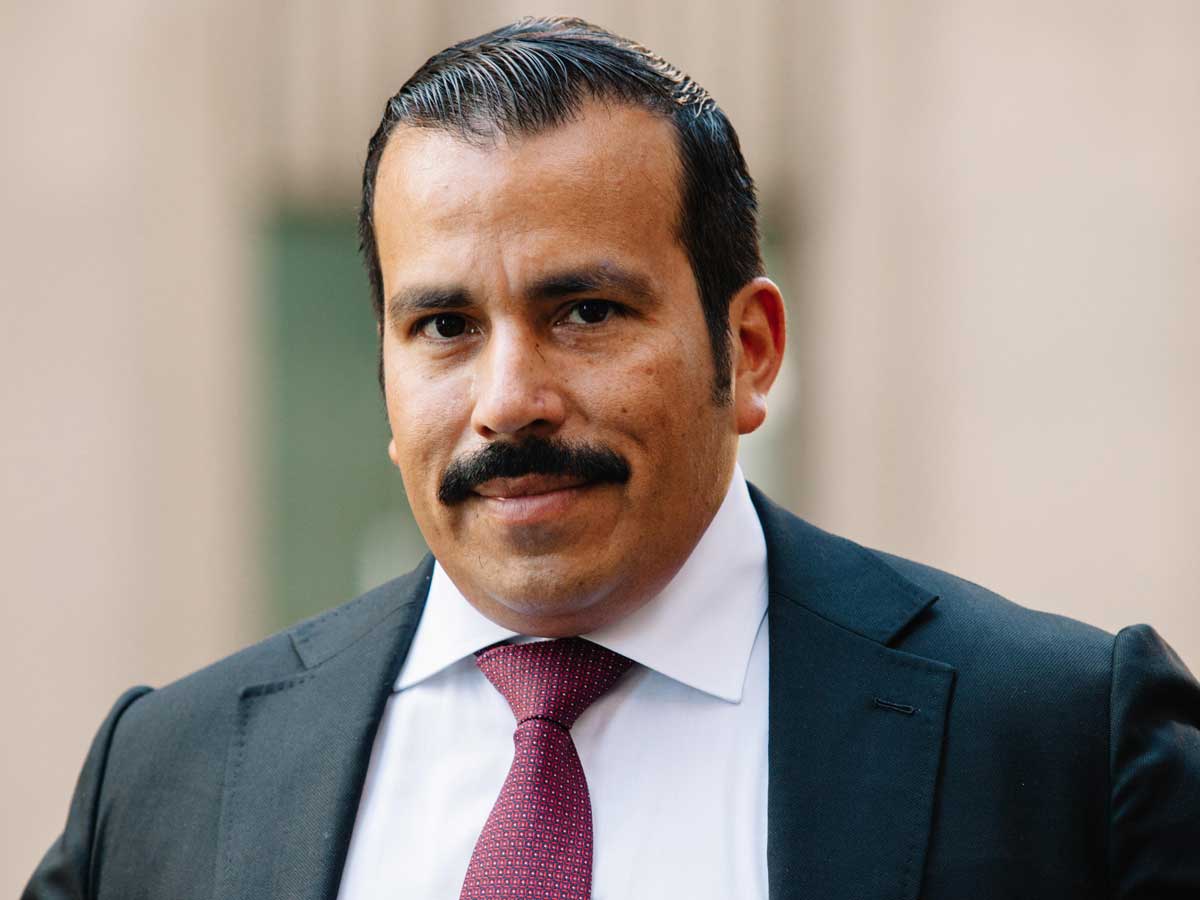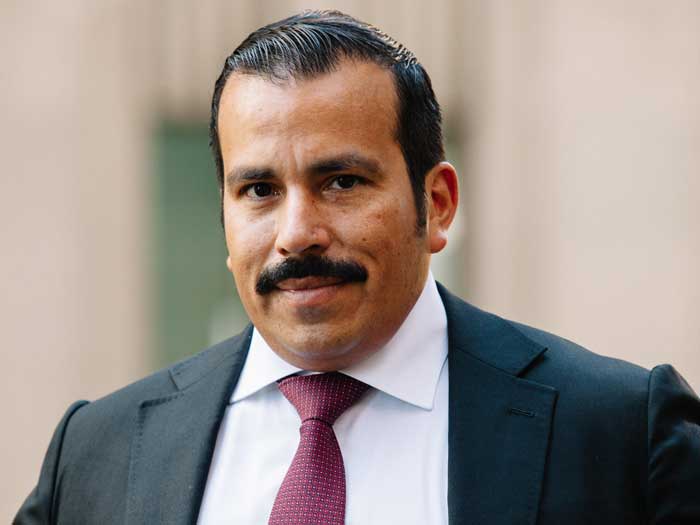
‘As CPAs, we have to look for anything that is unusual’
 Globally recognized CPA José Hernandez has worked on some of the largest fraud and money-laundering cases on record (Photo courtesy of Ortus Strategies)
Globally recognized CPA José Hernandez has worked on some of the largest fraud and money-laundering cases on record (Photo courtesy of Ortus Strategies)
Over the past 20-plus years, CPA José Hernandez has used his considerable expertise in anti-corruption, corporate misconduct and ethical leadership to work on some of the largest fraud and money laundering cases on record. Since 2016, he has been CEO of Ortus Strategies, a consulting firm that helps companies rebuild ethics and compliance programs. He has also provided expert input to government fact-finding and policy-development initiatives, including the Commission of Inquiry into Money Laundering in British Columbia (the Cullen commission).
Here Hernandez explains the global factors that are making it ever more difficult to “follow the money” in cases of corruption or money laundering—and what CPAs can do.
CPA CANADA: In a recent CPA Canada podcast, you said one of the biggest challenges in combatting money laundering these days has to do with the use of third parties. Could you tell us more?
José Hernandez (JH): Statistics show that in three-quarters of corruption cases or cases where funds are being diverted for improper purposes, third parties are used to handle these transactions.
As accountants, we have traditionally tended to focus on invoiced transactions between an entity and a customer or a supplier—where there is only one degree of separation. But, suppose I make a $100 payment to an offshore company and I tell them to take $20 from the $100 and send it to a high-ranking government official. In that case, my books and records will simply show a $100 invoice for some goods or services, which may or may not have been rendered.
So, when it comes to corruption and money laundering, a diligent accountant needs to ask, “There was a payment for $100, but is it possible that some part of that amount is being diverted for improper purposes?” Organizations need to make sure that their people are not using third-party intermediaries to win deals by diverting some of their funds to hidden beneficiaries.
CPA CANADA: What can accountants do in such cases?
JH: As accountants, we need to use our professional judgment and look for red flags — anything that is unusual. For example, if a third party is domiciled in a low-transparency jurisdiction such as an offshore tax haven. Another example would be if you have had very few dealings with a certain third party and then suddenly you are doing $100 million worth of business with them.
When it comes to onboarding customers and third-party suppliers or partners, you have to do your homework and understand who you’re doing business with. And a good practice is to update that due diligence if a third party is bought by another company or there is a change in its management. There are a lot of good practices in the procurement space that we can use.
CPA CANADA: Now that we rely on a global supply chain, this means an event such as the pandemic can cause havoc with the entire system. As the need for supply in such a fragile environment continues, does it increase the likelihood of money laundering?
JH: Among many other consequences, the pandemic created supply chain log jams. Two years ago, we were looking for anyone who could sell us face masks—it almost didn’t matter who they were.
That push to find different or new partners certainly makes things much more complicated because you have no history with these parties. And many third parties also rely on other third parties to add opacity to their business dealings. It’s a very complex picture and one that criminals can use to their advantage.
CPA CANADA: What is the biggest challenge that has arisen out of the situation in Ukraine, including the sanctions?
JH: Ukraine is a very, very complicated topic. First of all, energy and food shortages are creating enormous inflation and are also wreaking havoc with emissions targets.
Germany is firing up coal power plants and, in the Netherlands, where I live, we have farmers striking and saying, why do we have to limit our emissions? It’s creating a bit of a social and an economic revolution from a business perspective.
When it comes to sanctions, if you speak Russian or are of Russian nationality or have Russian ties, it’s becoming very difficult for anyone to do business with you at the moment, particularly in Europe and North America.
As an organization, there are three things you must keep in mind right now. First, you must be aware of the thousands of names that are on the sanctions lists. Second, you must know what technologies and goods cannot be exported to certain jurisdictions. And, third, you have to understand the mega-trends that are coming together and making people nervous — climate change, inflation and supply shortages.
CPA CANADA: Have there been many attempts to get around the sanctions?
JH: Yes. And, of course, there are certain jurisdictions, such as the UAE or India or Iran, where these sanctions are seen in a different light.
That said, Western countries are moving in unison like never before. And, over the next few years, we will likely see prosecution of entities that got involved—inadvertently or intentionally—with parties on sanctions lists. Because of the high stakes of the war in Ukraine and other factors, there’s a heightened sensitivity around these issues now.
CPA CANADA: The Cullen report includes an entire chapter (Ch. 38) on trade-based money laundering. What do you consider to be the key takeaways?
JH: The Cullen report is very effective in showing how trade-based money laundering, or TBML, can happen in the simplest of ways, by using commodities that are easy to buy and sell and by using methods such as over-invoicing. It also provides a good road map for understanding the types of entities that are involved in TBML and what to look for. That’s why I think it’s worth reading Chapter 38 in particular because the risk factors are really clear. As accountants, we may need to retune our thinking on risk in the context of money laundering, especially as the stakes are getting higher.
That said, playing our role in the fight against money laundering starts with things that are already central to our professional ethics and training as accountants—knowing the business, looking for unusual items, and not just being satisfied that there’s an invoice or contract supporting a payment. And, if we have questions or concerns, we consult. That’s what we’re trained to do—to explore and document our understanding. And, if we perform our due diligence in good faith and take reasonable measures to get to an answer—even if that answer turns out to be wrong—we’ll be okay because we took a sensible, rigorous, professional approach.
DELVE DEEPER INTO AML
For more on the CPA’s role in fighting corruption and money laundering, tune into CPA Canada’s podcast. Brush up on AML rules with CPA Canada’s wealth of resources. And make sure to sign up for The ONE conference, where José Hernandez will be a panelist.
Plus, learn more about the implications of the Cullen report and how CPAs can be the first defence against misinformation in an era of fake news. And help scandal-proof your organization by taking advantage of a globally accepted framework.